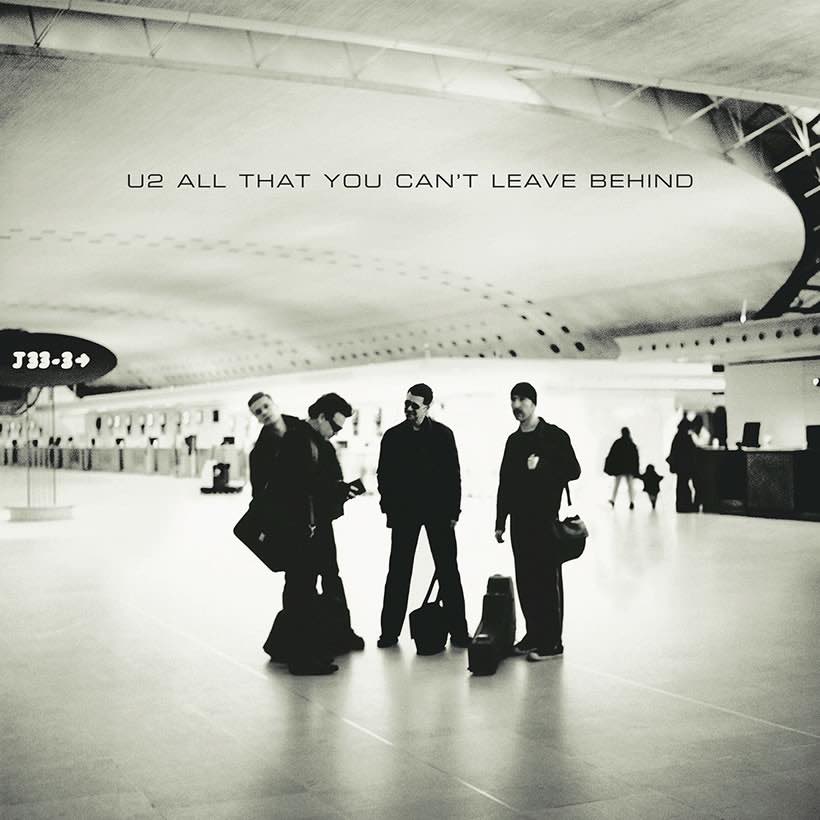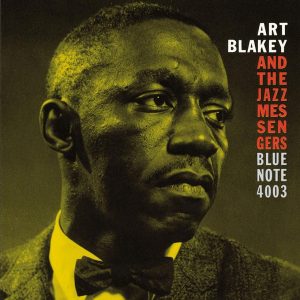A new century, a new sound and new records to be broken. A whole lot was happening in U2’s world in 2000, but most of all, there was a new album that Rolling Stone described as their third masterpiece.
After the richly experimental odyssey of 1997’s Pop, the band decided that it was time to remind people of how they had come to prominence in the first place: by making glorious, celebratory rock music, this time for a new millennium.
And in doing so, they emerged on October 30, 2000 with All That You Can’t Leave Behind, which has sold a spectacular 12 million copies to date, and achieved something that no other artist had done, or has since. The album contained the Grammy-winner for Record of the Year not just once, but twice, with “Beautiful Day” in 2001 and “Walk On” in 2002. Those were just two from a bounteous haul of seven Grammy Awards. The contract for the role of best rock‘n’roll band in the world had been firmly and enthusiastically renewed.
All That You Can’t Leave Behind, recorded in four Dublin locations, including Windmill Lane, as well as in the south of France, was a happy reunion of what you might call the U2 dream team. Daniel Lanois and Brian Eno, who had helped the band create the sound that made them world-beaters with The Unforgettable Fire and The Joshua Tree, and again with Achtung Baby, were back in the producers’ chairs.
They also provided backing vocals and other instrumental duties, and there was additional production by original collaborator Steve Lillywhite, among others. The results were explosive and joyful.
From PopMart to The Simpsons
After almost a year as one of the grandest-scale rock tours of all time, the PopMart itinerary finally concluded in the spring of 1998, soon after U2’s first show in South Africa. Their next accolade was afforded to only a select few when they appeared on The Simpsons. In Trash of the Titans, despite gatecrashing the band’s PopMart concert, Homer wins a landslide victory as Springfield’s Sanitation Director. No wonder, with a campaign slogan of “Can’t someone else do it?”
As the band embarked on their own, real-life campaigning for Amnesty International that year, the name of U2 remained an indelible chart presence throughout the world. “Sweetest Thing” became a huge hit, the better part of 20 years after it had been recorded.
A memorable start to 1999 for Bono had him presenting a Freddie Mercury Award to Muhammad Ali, joining Bob Dylan on stage again and then inducting Bruce Springsteen into the Rock and Roll Hall of Fame in New York. But songwriting and demo sessions, for what would be the follow-up to Pop, were already well underway.
The no-nonsense, back-to-basics approach to making each song on All That You Can’t Leave Behind into a keeper was summarised by Bono. “From the beginning,” he said, “we were excited when music met the real world, and, going into this, we reckoned that people aren’t buying rock records anymore because of this progressive rock lurgy, which is on the rise, where the single has been forgotten. In our heads, we’ve written 11 singles for this record.”
A top-of-your-lungs anthem
Absolute confirmation of that resolution came in the opening single “Beautiful Day.” It was one of those rare, top-of-your-lungs anthems from the moment it left the studio, and it’s been part of every single live performance by U2 since it was released.
“Beautiful Day” went to No.1 in the UK (on the October 21 chart) and internationally, providing the best possible trailer for the album that arrived soon afterward. What better celebration of a new century than a lyric that beamed, “It’s a beautiful day, don’t let it get away”? The track was not only the Song of the Year at the 2001 Grammys, but Record of the Year and Best Performance by a Duo or Group with Vocal.
Elements of the club-compatible U2 sound of the late 1990s remained in “Elevation.” It was one of three more compositions honored at the next Grammys, as the band uniquely retained that Best Rock Performance trophy. The heart and soul of the album was the inclusive immediacy of the music, with “Stuck In A Moment You Can’t Get Out Of” taking the 2002 Best Pop Performance Grammy, as the inspiring, defiant “Walk On” won the Record of the Year title. The band were on hand to perform it at the ceremony.
Supporting those celebrated numbers was a backbone of powerful album tracks such as “Kite,” the ultra-positive “In A Little While,” the charming “Wild Honey,” “Peace On Earth,” and “When I Look At The World,” and the gentle “Grace.” U2 have not once taken such things for granted, but the album accrued a dizzying array of No.1 positions, all through Europe, Australia, and beyond.
Buy or stream the multi-format 20th-anniversary edition of All That You Can’t Leave Behind.
Rolling Stone called the album a masterpiece because, said the magazine, it represented a masterful sum total of all the experience they’d gathered. “U2 distill two decades of music-making into the illusion of effortlessness usually only possible from veterans,” went the review. “The album represents the most uninterrupted collection of strong melodies U2 have ever mounted.”
On the road for 2001
The Elevation tour that commenced in March 2001 was a celebration of another album triumph. The band were on the road for the remainder of the year, playing 113 shows in 14 countries, to a breathtaking total of two million people. The European leg included four nights at Earls Court in London and a summer show at Slane Castle in Ireland.
Listen to the best of U2 on Apple Music and Spotify.
The encore was the super-prestigious slot at the Super Bowl XXXVI half-time show at the Louisiana Superdome. The band dedicated their performance to all those who had lost their lives on 9/11. It was some stage on which to marry U2’s present with their past, as they played “MLK” and “Where The Streets Have No Name,” after they had unleashed that hedonistic new signature tune of theirs. Beautiful days indeed.
Read more from uDiscover Music’s Behind The Albums series on U2.




